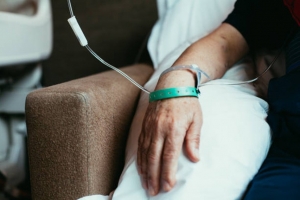Test Owner
Disability and education campaigners have raised the alarm after reports in the national press suggested the government may cut back support for children with special educational needs and disabilities (SEND) in its long-awaited Schools White Paper, expected early next week.
According to a report in The Times, ministers are considering tougher rules for access to statutory support, including reassessing children’s entitlement when they transfer to secondary school. The article claimed the aim would be to reduce what officials view as overly “rigid” legal duties, which have been linked to rising costs in the SEND system.
The leak also suggested that many pupils with less severe needs – including some children diagnosed with autism or ADHD – could lose eligibility for education, health and care plans (EHCPs). Instead, a tiered approach has been mooted, where children would start with standard support in mainstream schools and only move up to higher levels if necessary. Under the proposals, nationally designed “specialist provision packages” would be used to decide which needs qualify for the top tier.
Groups including Save Our Children’s Rights said stripping legal protections would not solve the crisis, arguing the existing law should be properly enforced instead. The National Autistic Society also criticised the way information was emerging through leaks, warning that repeated reassessments and weaker rights to challenge decisions would be unacceptable. The Department for Education insisted full details would be published shortly, describing the plans as an expansion of children’s rights and a move towards a more inclusive system.
The government has announced a 7% increase to the Minimum Income Guarantee for working-age disabled adults who receive social care, delivering an average annual boost of around £400. More than 150,000 people are expected to benefit from the above-inflation rise, with those qualifying for the disability premium able to retain up to £510 extra each year.
The Minimum Income Guarantee sets the amount councils must leave individuals with for personal spending after they have contributed towards the cost of their home-based care. Ministers say the uplift will help people manage essential outgoings such as groceries, energy bills and other daily expenses, as part of wider efforts to reform adult social care and promote greater independence.
Care Minister Stephen Kinnock said the changes were aimed at easing financial strain on some of the most vulnerable in society. From April, he said, eligible adults would keep hundreds of pounds more of their income. The Personal Expenses Allowance for those in residential settings, along with the guarantee for people over 65, will rise by 3.8%.
Charities have offered a mixed response. Mencap welcomed the increase as progress, though it reiterated its call for social care to be free at the point of need. Disability Rights UK argued that the revised rate still falls short of what is required for a decent standard of living and urged a broader review of disability-related costs.
Cancer Plan Targets Inequality
Ministers have unveiled a new National Cancer Plan aimed at tackling stark inequalities faced by disabled people, particularly those with learning disabilities. The strategy pledges to improve early diagnosis and provide more personalised care throughout treatment and recovery. An accompanying equality impact assessment acknowledges that disabled patients are more likely to be diagnosed at a later stage, attend A&E before receiving a diagnosis, and face a higher risk of death.
Evidence reviewed during the plan’s development found that people with learning disabilities are significantly less likely to be referred for urgent investigations when presenting so-called ‘red flag’ symptoms. Barriers include limited understanding among healthcare professionals and screening staff about reasonable adjustments, accessible communication and the specific needs of autistic people and those with learning disabilities.
The reforms are backed by a £2.3 billion investment, intended to fund 9.5 million extra diagnostic tests by 2029. This will include more scanners, expanded community diagnostic centres operating extended hours, and upgraded digital systems. Patients will also be offered the earliest available appointments across local NHS providers, while efforts to boost digital inclusion aim to ensure disabled people are not left behind.
Health and Social Care Secretary Wes Streeting said cancer outcomes should not depend on personal circumstances. Disability organisations have welcomed commitments to earlier identification and improved screening access, including engagement with manufacturers to develop mammography equipment suitable for people with physical impairments.
Autism Absence Concerns
Around one in three autistic pupils have missed more than a month of school so far this academic year, with families citing poor mental health, physical illness and unsuitable placements as key reasons. The findings come from a new survey by the charity Ambitious about Autism.
The charity said many parents and young people feel they are being unfairly judged for non-attendance. Half of those who responded reported feeling blamed by the Government when school is missed, despite the barriers they face in accessing education.
The survey lands as ministers prepare to publish a long-awaited plan to overhaul the special educational needs and disabilities (SEND) system. Expected reforms are likely to put greater emphasis on improving mainstream provision, where more than 70% of autistic pupils are currently educated. Ambitious about Autism argues that without properly funded support, mainstream schools will continue to struggle to meet needs, pushing more children out of learning.
The charity said its findings reflect Department for Education figures showing more than 60,000 autistic pupils in England are persistently absent, typically missing around a month or more across the school year. It is calling for better training, resources and consistent specialist support. Alongside this, it has launched its “Absence Notes” campaign, inviting autistic young people and families to share their experiences and sign a collective message urging the Government to ensure SEND reforms work in practice.
A Holyrood committee has called for a full review of how attention deficit hyperactivity disorder (ADHD) and autism are assessed in Scotland, warning that long delays are leaving many people without vital support. The Health, Social Care and Sport Committee found that waiting times for neurodevelopmental assessments can stretch into years, with some health boards closing their lists entirely.
In a newly published report, the committee said growing demand for assessments reflects better awareness and historic underdiagnosis, rather than an increase in inappropriate referrals. Members argued that inconsistent access across the country is unfair and can prevent individuals from accessing reasonable adjustments, treatment options or support that would allow them to participate fully in education, work and society.
The committee is calling for a national standard for autism and ADHD assessments to ensure consistent, high-quality provision regardless of location. It also stressed the importance of clear and reliable pathways into post-diagnosis support, noting that a lack of diagnosis can leave people excluded from services even when their needs are evident. The report highlights that prolonged waits can push individuals into crisis, increasing pressure on already stretched services.
Alongside assessment reform, the committee recommended improved national monitoring of referrals and waiting times, including regular reporting and the development of a comprehensive data dashboard. It also urged a joined-up approach across health, social care, education and other public services, with better workforce planning, integrated funding, inclusive education and stronger support for families, to improve outcomes for neurodivergent people across Scotland.
Kent and Medway Mental Health NHS Trust has rolled out a new electronic patient record system designed to improve how reasonable adjustments are identified and delivered for autistic people and those with learning disabilities. The digital approach aims to ensure that key information about patients’ needs is recorded clearly and used consistently across services.
Through a secure online portal, patients are now able to share important details at their first appointment, including communication preferences, neurodivergence, and any adjustments they require. Recording this information early is intended to reduce repetition for patients, cut down on administrative duplication for staff, and improve continuity of care across different teams and settings.
The new system also provides real-time data, allowing services to track patient journeys more effectively and identify pressures or gaps in support. By replacing retrospective audits with live information, teams can better understand outcomes, plan care more proactively and support safer, timelier discharges from services.
The records were redesigned in collaboration with people who have lived experience of autism and learning disabilities, alongside clinicians. Their input helped shape what information is collected, how it is described and how it is flagged within the system. The Trust said this co-designed approach ensures the records reflect real needs rather than assumptions, supporting more personalised care. Leaders at Kent and Medway say the digital infrastructure forms part of a wider programme to reduce inequalities and meet national expectations around reasonable adjustment flags in mental health services.
A coalition of leading autism organisations has sharply criticised the Government’s reply to a House of Lords review of the Autism Act, accusing ministers of failing to take the issue seriously. Groups including Ambitious About Autism, Autistica and the National Autistic Society say the response lacks urgency and sidesteps the need for a clear, dedicated plan for autistic people.
The charities argue that ministers relied heavily on broad, existing policies rather than addressing the specific recommendations made by peers. They point to strategies such as the NHS 10-Year Plan, which they say does not properly consider the needs of autistic people, as evidence that autism continues to be absorbed into wider agendas without targeted action.
Campaigners are particularly concerned that no commitment has been made to replace the current national autism strategy, which expired last summer. Despite the legal framework set out in the Autism Act, the Government has offered no timetable for a new strategy or explanation of how it will meet its obligations. The organisations say this lack of clarity risks prolonging long-standing failures in support and services.
The groups warn that continued inaction has serious consequences, including poorer health outcomes, higher rates of mental ill-health, exclusion from education and extremely low employment levels. They also highlighted the unprecedented volume of evidence submitted to the Lords inquiry, saying it demonstrated strong public concern. The charities are urging ministers to engage properly with autistic people and their families and to deliver concrete, joined-up measures rather than further general promises.
The Medicines and Healthcare products Regulatory Agency (MHRA) has published fresh advice to help people better understand and safely use digital tools designed to support mental health. Released on 27 January, the guidance forms part of new free online resources created with NHS England for the public, parents, carers and professionals who recommend or rely on such technologies.
Use of mental health apps and digital therapies has grown rapidly across the UK, particularly among children and young people. From mood diaries to immersive virtual reality treatments, these tools are increasingly used alongside NHS and community services. However, knowing which products are trustworthy can be difficult. The MHRA says the new resources are intended to help users recognise reliable tools, understand potential risks and take action if something feels wrong.
The guidance encourages people to ask simple but important questions before using an app or platform. These include understanding what the tool claims to do, who it is designed for, whether there is evidence it works and how personal data is handled. It also explains that some products are regulated as medical devices and must meet UK safety standards, while others are classed as wellbeing tools and may not undergo the same checks.
The resources include short videos and real-life examples, and explain how concerns can be reported through the MHRA’s Yellow Card scheme. Developed with NHS England’s MindEd programme and supported by Wellcome, the initiative aims to improve confidence, safety and informed decision-making as digital mental health support becomes more common.
The NSPCC has released new, easy-to-use resources to help parents and carers support children and young adults with a learning disability as they experience puberty. The materials are intended to guide families through what can be a complex stage of development, both physically and emotionally, and to help young people better understand the changes happening to their bodies.
Young people with a learning disability may struggle to make sense of puberty, regulate new emotions or explain how they are feeling. The NSPCC says this can sometimes lead to confusion about personal boundaries or what behaviour is appropriate in different settings. The guidance highlights the importance of clearly explaining the difference between public and private spaces, helping young people to stay safe and confident as they grow.
The charity also recognises that puberty can be challenging for parents and carers. Many may feel unsure or uncomfortable starting conversations about topics such as sexual development, hygiene or behaviour, and may not know where to turn for reliable advice. To address this, the NSPCC has produced two practical guides covering puberty and sexualised behaviours, alongside symbol-based booklets on subjects including periods, body hair, erections, masturbation, sweating and wet dreams.
Developed by the NSPCC’s Together for Childhood Stoke team with local partners, the resources use clear language and simple symbols to improve understanding. They have also been designed to be fully accessible, including compatibility with screen readers, ensuring as many families as possible can benefit from clear, supportive and inclusive information during this important stage of life.
The National Autistic Society Scotland has urged the Scottish Government to bring forward the proposed Learning Disabilities, Autism and Neurodivergence (LDAN) Bill before the Scottish Parliament election in May. The charity says the legislation is crucial to improving the lives of autistic people, people with learning disabilities and neurodivergent people across Scotland, and should not be delayed any further.
Developed after wide-ranging consultation, the Bill is designed to strengthen human and civic rights, promote fairness and drive meaningful change. While Scotland already has a number of policies and strategies in place, NAS Scotland argues there is still a significant disconnect between the support people are entitled to and what they experience in reality, particularly in education, health services, social care and employment.
According to the charity, many individuals and families continue to struggle without adequate help, often reaching crisis point. Rob Holland, Director of NAS Scotland, said autistic people should not have to wait any longer for reforms that respect their rights and allow them to live independently and with dignity. He added that political commitment is needed to tackle long-standing inequalities and poor outcomes.
The call comes alongside the launch of NAS Scotland’s new ‘Act Now’ campaign, focusing on diagnosis and support, healthcare access, schools and inclusive communities. Campaigners say the LDAN Bill could reduce long waiting times, improve professional training and introduce greater accountability, helping autistic and neurodivergent people to fully participate in a fairer and more inclusive society.











